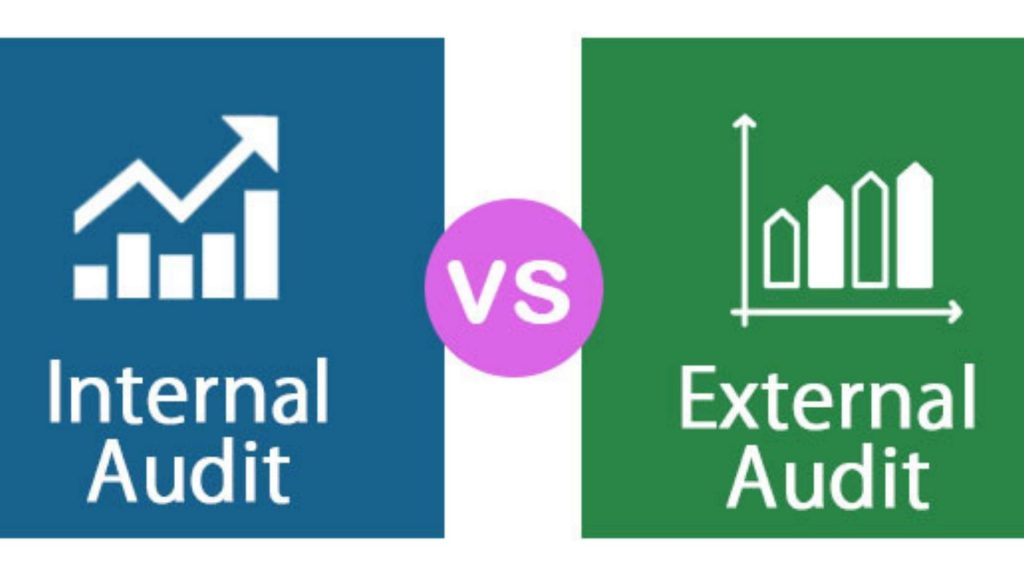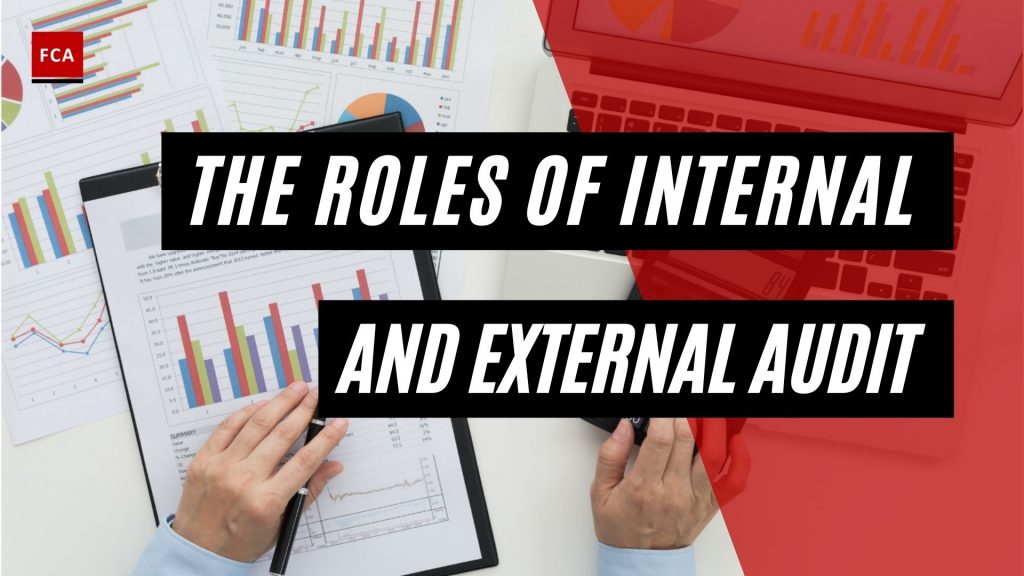The roles of internal and external audit are important in the fraud identification and investigation. However, their scopes are different from each other.
The Roles Of Internal And External Audit
Internal auditors will investigate issues concerning the company’s business practices and risks, whereas external auditors will examine the financial records and issue an opinion on the company’s financial statements.
Internal audits are performed throughout the year, whereas external auditors perform a single annual audit.

Internal Audit
Internal audit is an independent function within the organization or the company, which comprises a team of professionals who perform the audit of the internal controls and processes of the company or the organization.
Internal Audit Essentials
Internal audit staff are employees, but they are not part of the management of the organization or the company. It means that they do not perform business activities or take part in performing the operations of the company.
The internal audit department works as an independent department and reports to the board of directors committee and the board audit committee (BAC).
The internal audit department performs an audit of the processes and controls of the departments and functions of the organization or the company. Audit observations are identified and reported by the internal auditors in the internal audit reports.
Significant audit observations are reported by the head of internal audit or the chief internal auditor (CIA) to the BAC periodically.
Should Internal Auditors Discover Fraud?
As the internal audit function performs an audit of the processes and checks the effectiveness of internal controls. Therefore, this person is vested with the powers to investigate fraud incidents. Internal audit is provided with sufficient authority to obtain and review the relevant evidence both within and outside the organization. Investigating fraud is the additional responsibility of the internal audit department in any organization.
Internal auditors appropriately plan the fraud investigations and deploy relevant and experienced resources to investigate the case. The process may involve interviewing the fraudsters and other relevant employees.
The investigation report is prepared by the internal auditors after performing the investigation procedures and gathering sufficient appropriate evidence. The fraud investigation report is shared with the company’s fraud management committee and to the BAC for their consideration and feedback.
External Audit
External auditors are the independent third party or a body of professionals who perform the statutory audit of the financial statements of the organizations or the companies. The external audit is the necessary activity that is performed by external auditors to provide an independent opinion on the financial performance and financial position of the company.
External auditors are not related to or part of the management of the company being audited. They are required to maintain independence. Independence means the performance of audit activities and procedures without any influence by the board of directors or the management of the company.
External auditors are qualified professionals in the field of finance and audit. Therefore, their audit activities and audit reports are considered very reliable by the shareholders and other stakeholders of the company.

Scope Of External Audit
The scope of external audit is limited to the financial statements of the organization or the company which is under audit. External audit in most cases is the statutory requirement and the report of external auditors is shared with the shareholders of the organization or the company.
External auditors are required to apply the audit procedures on the financial information and transactions of the company that occurred during the past period. External auditors’ scope is limited to the financial information and transactions that occurred during the financial year.
External Audit Essentials
External auditors perform an audit of the financial statements of the organization. Their scope is limited to the financial statements amounts and balances. It is essential for external auditors that they must be independent of the organization or the company audited.
Independence means the external auditors must not be the employees of the company and should not take part in the decision-making process in any activity of the company. They perform an audit for the shareholders of the company, vendors of the company, and they must not obtain significant services from the company of which they perform the external audit.
Should External Auditors Discover Fraud?
There may be the possibility that management of the organization prepares the financial statements fraudulently or try to artificially inflate or deflate the financial amounts to show the wrong profits or financial position of the company to shareholders.
External auditors are required to obtain sufficient appropriate audit evidence to support the audit opinion on the financial statements of the organization or company.
Reasonable Assurance
External auditors are required to provide the opinion on the financial statements of the organization. They obtain evidence and corroborate the evidence to ensure that they may form a reasonable assurance that whether the financial statements of the company are prepared in all material respect by applicable financial reporting framework and financial statements are free from any fraud.
As the management or board of directors may be involved in preparing the financial statements fraudulently. Therefore, to cover the risk of non-detection of management fraud in preparing the financial statements, the external auditors appropriately plan the external audit.
External auditors ensure that appropriate audit procedures are performed on the financial statements, balances, and amounts so that any intentional fraud is identified during the audit activities.
When the external auditors identify the frauds in the financial statements of the organization or the company, then the matter is discussed by the external auditors with those charged with governance or the board of directors. The auditors ensure that the board takes appropriate measures to rectify the identified frauds in the financial statements. After the rectification of fraud impacts, the external auditors reperform the audit procedures on the financial statements to ensure that fraudulent financial statements are rectified appropriately.
When the board of directors does not take the initiative to resolve the fraud issues in the financial statements, then the external auditors report such fraud facts with the relevant regulatory authorities of the organization and the institutions.
Final Thoughts
Internal auditors work within a company and report to the audit committee or the board of directors. They contribute to the design of the company’s organizational systems as well as the development of specific risk management policies. They also ensure that all risk management policies are in place and working properly. Internal auditing is a continuous process that is based on the internal control systems of any size business. External auditors are not affiliated with the organization they are auditing. They are accountable to the company’s shareholders. They offer their expert opinion on the accuracy of the company’s financial statements and work on a test basis to monitor the systems in place.








